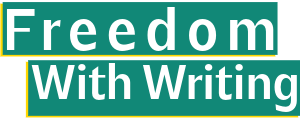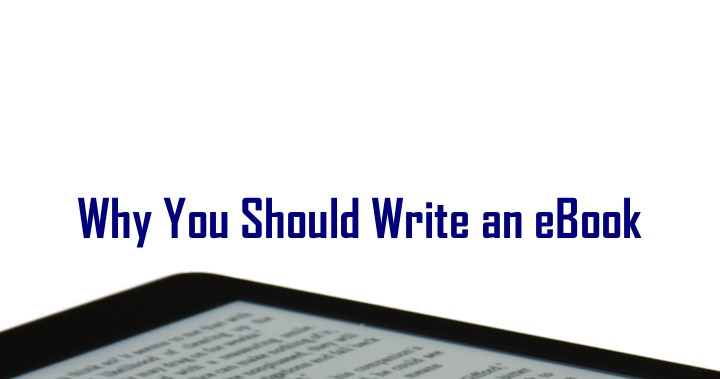We love writers and we love helping writers earn money. That’s why we recently published an article all about publishing your own eBooks. If you haven’t read that article, do it now. Once you’re done, keep reading. We’ll help you answer one of the most important questions: How to set the price for your book so you can make the most money possible.
I’ve been asked a lot about how to set the price for an eBook. It is a great question and it isn’t as easy to answer as it might appear on the surface. There are several factors to take into consideration to get you the most return for your specific eBook.
The basics are fairly simple: Because there is no overhead in creating an eBook, you can and should price it lower. There is a great deal of debate going on at the moment in the publishing industry with regards to eBook prices. The reality is that there is a point where you will sell more books and make more money as a result of lower prices. The trick is finding that sweet spot.
Amazon recently sent out a letter to all Kindle publishers that highlighted the reality of lower prices making authors more money. This is an ongoing battle that is best left to others but on the point of pricing, at least for new authors, they are accurate. They’re so serious about this, when you publish your book, they’ll show you a graph that predicts the most profitable price for your book.
Depending on the choice you make when publishing your eBook through Amazon, you can expect to receive around 70% of the each sale. If you self-publish on your own website you would of course keep all of the proceeds from each sale. That 30% Amazon is keeping pays for ease of transmission to Kindles, marketing and search engine availability. This is not something to be taken lightly.
The new author is competing in a vast marketplace and needs to have a price point that is high enough to pay for the time spent creating the book and low enough to attract the attention of browsers. If your first eBook is priced at $9.99 many are going to move past simply because you are an unknown. If it is priced at $2.99 they may take the chance. A lot here depends on what your book is about and the audience that you are targeting.
Genres
When looking at pricing your eBook it’s extremely to not that some genres do better than others and that is largely based on demographics. Don’t worry; I don’t expect anyone to get demographic charts out to make a determination here. Common sense is usually enough to handle the matter. Just ask yourself who your target audience is and how much they are likely to pay for your book. It’s that simple.
High-Demand Niches
There are some niches that are lacking in solid eBooks. These tend to be very tiny niches and if you are an expert in that area and crank out an eBook you can probably get top dollar for it. Again, ask yourself who the target audience is and what they will be likely to pay for your book.
How to actually price your own eBook
Once you have classified your genre and target audiences it’s not really difficult to price your eBook. Get started by logging into Amazon and searching for books in your specific genre. Look for books of a similar nature with a high number of reviews. The reviews themselves don’t matter. What matters is that a large number of people are buying the book. Compare the prices and price your book accordingly.
There are two considerations here. Please pay attention to them because they can be the difference between sales and your book languishing in the netherworld of cyberspace!
1-The New Author
If you are a new author and have never published anything before then you will seriously want to consider a lower price for your first book. $2.99 is not unreasonable and neither is $1.99. Look at it from the point of view of the reader:
You are looking for information and you want an eBook on the subject. You type your topic into the Amazon search and an eBook from an unknown author with no reviews pops up. You can choose it for $9.99 or you can try another author, perhaps one with a few reviews. Or even another unknown author with no reviews but their book is priced at $2.99. Which option are you likely to choose? For your very first book you want to price a bit below the competition that has reviews.
There is a funny thing about reviews: Once you have some positive ones the assumption is that no matter what you write about it’s going to be good. If you write a gardening eBook that everyone loves and then write a cooking eBook, the reviews from the first will tend to bias people in your favor.
2-The Returning Author
One of the things I have suggested that new writers do is to write a short first book (this is especially good for fiction writers) and essentially give the book away. Consider it a marketing ploy. The idea of the first book is to get your readers hooked. Then sell the second book for $2.99 and the third book for a little more. In this way your audience is primed for your second book. A great plan is to create the first book, hold it and then publish it at the same time. In this way you can easily direct people to the second installment of your work at the end of the first book.
Fiction Tips
Fiction has a few slightly different aspects to it that need to be mentioned.
Book Length
As hard as it is to imagine, Harry Potter was almost thrown away because it was believed the target audience would never read a book that long. That was the first book in the series, the shortest of them all. I use Harry Potter a lot in my articles because it is the perfect example of all the experience and knowledge of some of the world’s top publishers being completely wrong. It’s also a great example because of everything we learned from it. Just for starters we learned:
- If the book draws in the reader people will happily read 1,000 pages.
- Spending time describing places and things has merit when done correctly and when it adds to the story.
- It doesn’t have to make immediate sense as long as it eventually makes sense.
What all of that means is that when writing fiction you need to tell the story. Use as much detail as you like and immerse your readers into it so deeply that they aren’t sure where reality and your book separate. Let them smell the magnolia blossoms on the veranda during a sultry summer night in New Orleans. Most readers of fiction want to savor and become a part of the story. If you can tell your story in 150 pages that’s great and if you need 500 pages then use 500 pages. Don’t get caught up in length. Length is perhaps the least important factor in your book. I would go so far as to say that it is unimportant.
Why am I pushing this so hard? To get great reviews and sell more books you need for people to be satisfied with your book. There are two parts to this. The first is that they thoroughly enjoyed your story and they either want more by way of another book or are satisfied in how the story concluded. The second part is that they feel like their time and money were both well spent. Fiction writing touches everyone in slightly different ways so it can be more difficult to satisfy an audience.
Non-Fiction Tips
Reader satisfaction is typically easier with non-fiction because you give them the information that they sought and they are happy with it. It’s easier to fill that need. All that is necessary here is for the title and description to be completely accurate in describing the information in the book. As long as you present complete information the reader should be happy with the book and feel that their money was well spent.
One difference here is that in non-fiction, particularly in instructional books, people tend to prefer clear and concise information. Less is more in much of non-fiction. Give them the promised information in as few pages as possible.
That’s it for pricing eBooks:
- Check out the competition and price your eBooks in the same range
- Consider giving your first book away as a marketing tool
- Anything from $0.99 to $2.99 is typical for a new author
- Don’t worry about length

